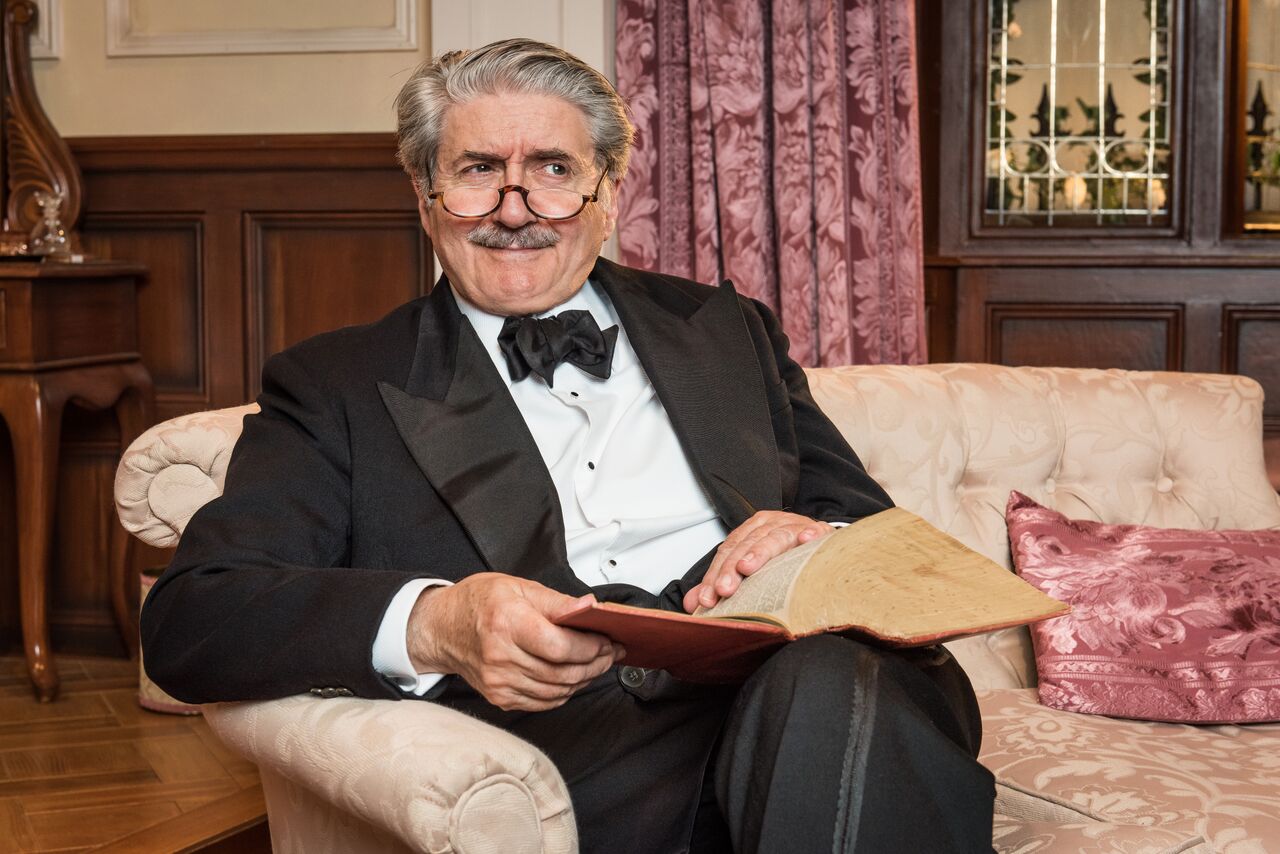Rodney Ackland was, in the 1930s, ranked alongside Terence Rattigan, Noel Coward and J B Priestley as a playwright of note. Priestley’s An Inspector Calls never goes away, Rattigan is always being revived and Coward is, well, Coward. But Rodney Ackland?
His play Before the Party, adapted from Somerset Maugham’s short story, does little to persuade us of the status he once, apparently, commanded. Whereas the plays of the other three writers are equally stuck in time and place they are either relevant today or are very witty. Before the Party, sadly was neither. The impression was very much that it was a vehicle for its star and director, the personable Tom Conti. The trouble with this vehicle was that it was not a stately Bentley but a humble Morris Minor, a vehicle ideal for meandering about in but not so good if you have somewhere important to go. Mr Conti, though, seemed quite happy to potter around, rarely getting out of second gear for most of the evening.
It was a typical play of its type – a wealthy family living in a large house; father, mother, three daughters, a nanny and a suitor for the widowed eldest daughter who has returned to the fold from darkest Africa with an equally dark secret. It was all about one particular skeleton in the cupboard, although most of the first half seemed to be about a door knob which just refused point-blank to stay attached to the door. Well, you can imagine the mayhem and hilarity that ensued as it kept falling off, when people kept banging their heads and all manner of other things associated with recalcitrant door fittings.
The action, sorry, that’s not the right word but will have to do, took place in the bedroom of daughter Laura in whose cupboard the skeleton was lurking. Why it all took place in this woman’s bedroom was never made clear. It was like Piccadilly Circus at times with people wandering in and out, Nanny plonking herself in a chair to do some darning – perhaps they had the decorators in downstairs.
The first half was about the family preparing to go to a party, the second half about what happened when they returned. The most important thing was that the doorknob had been fixed in their absence and didn’t fall off once and no further reference was made to it. Pity, I was mystified as to why it fell off in the first place and would have liked an explanation. I do hate unresolved plot lines.
The main problem about the whole thing, apart from it being not a very good play, was that Mr Conti, as director, could not decide whether to play the thing for laughs or drama. Some bits bordered on farce, and some were quite amusing, but I think if you read the text of the play it would come across as a drama, albeit a fairly lightweight one, so the two aspects did not sit happily together under Mr C’s baton.
On the plus side, all the performances were entertaining, some of them very good and I must confess to having a hearty smile once or twice. Tom Conti was Tom Conti and, as with all Bill Kenwright productions, there was a beautiful, very expensive looking set, this time designed by Julie Godfrey.
Had I not been wearing my critic’s hat I would probably have enjoyed this undemanding, entertaining fare a little more. I couldn’t help feeling, though, that it wasn’t just the door that the knobs had fallen off. ★★★☆☆ Michael Hasted at the Cheltenham Everyman, 6th October 2015


